News & Media
Achieving SDGs in Africa
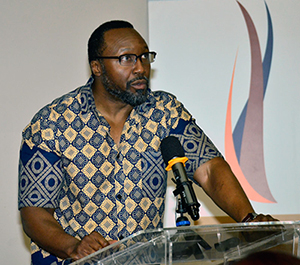
Keynote speaker, Dr McBride Nkhalamba, Head: Research Methodology and Development, APRM Continental Secretariat
The Unisa Graduate School of Business Leadership (SBL) hosted its 9th Annual Research and Innovation Day on 12 March 2020, focused on the theme "Why leadership is essential for achieving sustainable development goals (SDGs) for Africa".
Unpacking the very relevant topic was the keynote speaker, Dr McBride Nkhalamba, Head of Research Methodology and Development, African Peer Review (APRM) Continental Secretariat, together with panellists Ibrahim Gourouza-Magagi, the COO of Grow Africa at the AU; Prof Neha Purushottam, the head of Strategy and Marketing, Unisa SBL; and Elizabeth H L Shawa, Young African Leaders Initiative (YALI) Regional Leadership Centre Southern Africa (RLC SA) lecturer.
In his keynote address, Nkhalamba started with a strong message that leaders must possess intellectual muscle to be interested in leadership. He commended Unisa for its efforts to develop innovative leaders with a global understanding and the confidence, expertise and experience to build strong world-class institutions.
In responding to the theme, Nkhalamba emphasised that the most critical and primary role of a leader to deliver on the SDGs is to build and strengthen all institutions. He described institutions as formal and informal rules and systems being produced through routine actions which provides certainty. Values and aspirations are not enough to develop effective institutions, warned Nkhalamba; rather, leaders need to delve into the science of institutions and respect and rely on the science and evidence generated through research if they are going to get this right. He ended his address by stating that leadership is a duty and not a privilege, and institutions and leaders must be the catalysts for development.
The panel addressed the overarching theme and began with Gourouza-Magagi drawing linkages to Agenda 2063. He expressed that as African leaders we do not believe in what we adopt, referring to Agenda 2063. Agenda 2063 was developed in partnership with civil society, private and public sectors with African challenges at the forefront. According to him, we know what we need to invest in but instead $50 billion is lost annually as a result of illicit financial flows and African countries depend on $25 billion in Aid, because of poorly managed commodities. He warned that if African countries and leaders do not resolve the peace and security challenges, we will not succeed.
In addressing young people’s role in shaping and changing the African agenda, Shawa, who is also a YALI RLC SA alumnus, focused on how young people can be included in delivering the SDGs. She reminded the audience that young people have realised that they can contribute positively to achieving the SDGs and want to be actively engaged. She asked that if the systems and institutions to develop these young people exist, why not use them to unleash the potential of youth. She closed by reminding leaders that we should regard young people as partners and key stakeholders.
To emphasise her point, Purushottam quoted the African proverb, "If you want to go fast go alone, but if you want go far, go with others", and stressed that inclusiveness, participation and collaboration matter for the implementation of the SDGs.
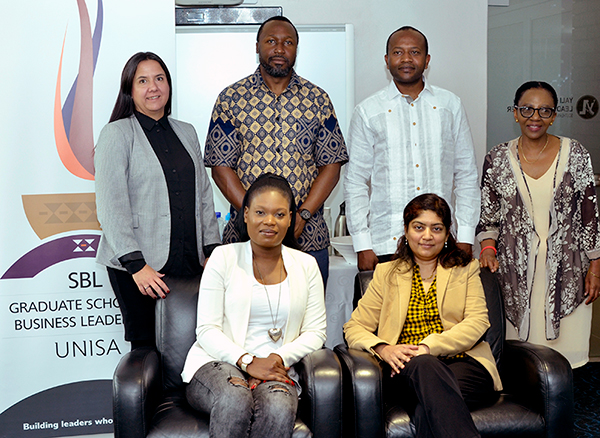
Panellists with Dr Colene Hind (Facilitator) and Prof Sasha Monyamane (Acting Academic Director: SBL)
The session gave the audience a chance to pose questions to the panel of experts. The following critical questions were asked and in their responses panel members reiterated their views.
Accountability is one of our biggest problems. Who will account to say we have achieved the SDGs?
Gourouza-Magagi said that the New Partnership for Africa's Development (NEPAD) had been mandated to report on Agenda 2063 and the deliverables that were met.
How can African leaders contribute to a global agenda?
Nkhalamba maintained that leaders should pay attention to and respect science and evidence if they wanted the continent to play a role globally.
What is the reason for the existence of the African Union?
No African country has been developed through aid. The AU ensures that powerful African countries use their resources to think strategically about how they empower other countries emphasised Gourouza-Magagi.
A comment was made regarding the contradiction in innovation and the respect of evidence and science.
Nkhalamba responded that disruption was necessary for transforming existing entities; however, you need to fall back on rules to do what you need to do. Much progress has been made in Africa and we are the fastest growing continent. The SDGs did not originate from outside the continent; they are a mirror of the continent’s challenges and countries must do self-assessments.
At what level do we engage civil society in terms of driving the SDGs?
The AU can only recommend and facilitate but does not have the power to enforce any policy on any state, stated Gourouza-Magagi, with Purushottam following with a question posed to the audience as to whether individuals are doing something to support Agenda 2063 in their own capacity.
What is leadership’s view in the respect of transparency?
Delivering on the SDGs means having strong institutions with leaders committed to strengthening them, reiterated Gourouza-Magagi.
In closing, Dr Binganidzo Muchara, Senior Lecturer in Finance and Economics at Unisa SBL, highlighted "effective institutions, transformative leadership, accountability, and inclusivity, especially of young people" as important takeaways as we continue to ponder the topic.
* Submitted by Cristal Peterson, Deputy Director: Communication and Marketing, Graduate School of Business Leadership
Publish date: 2020-03-20 00:00:00.0

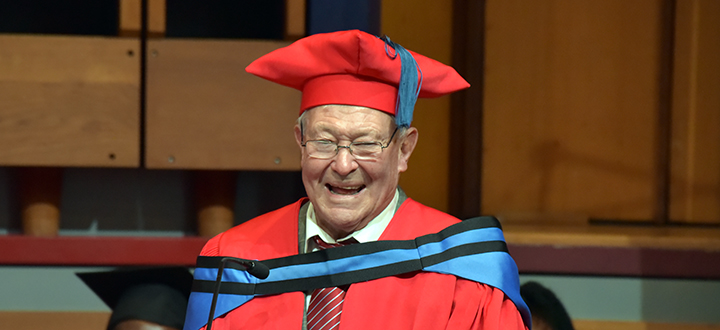 Community champion and agricultural entrepreneur extraordinaire honoured by Unisa
Community champion and agricultural entrepreneur extraordinaire honoured by Unisa
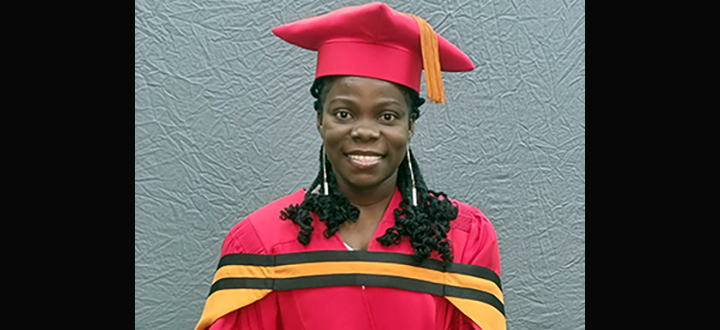 Ghanaian-born Swede earns PhD in Information Sciences from Unisa
Ghanaian-born Swede earns PhD in Information Sciences from Unisa
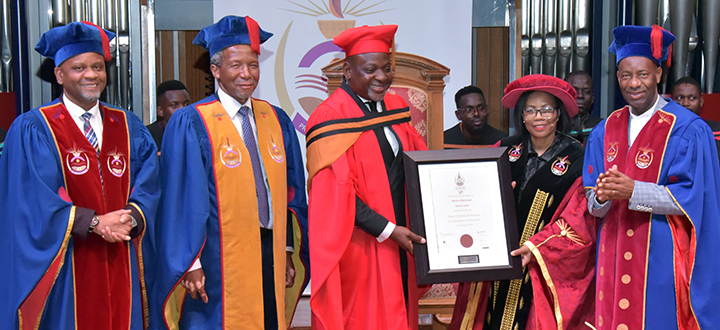 Unisa awards honorary doctorate to exemplary philanthropist and entrepreneur Collen Tshifhiwa Mashawana
Unisa awards honorary doctorate to exemplary philanthropist and entrepreneur Collen Tshifhiwa Mashawana
 Inhlanyelo Hub explores financing and sustainability at the International Conference on Business Incubation
Inhlanyelo Hub explores financing and sustainability at the International Conference on Business Incubation
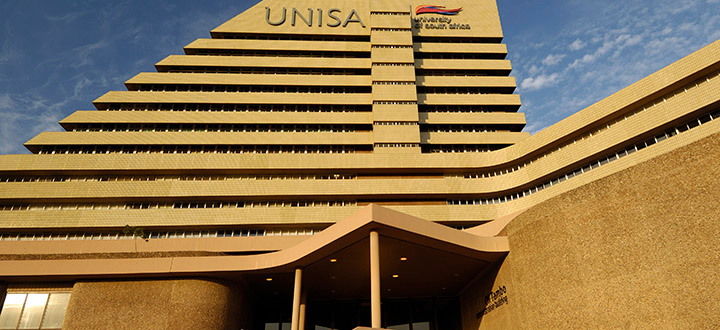 Unisa remains anchored among the waves
Unisa remains anchored among the waves